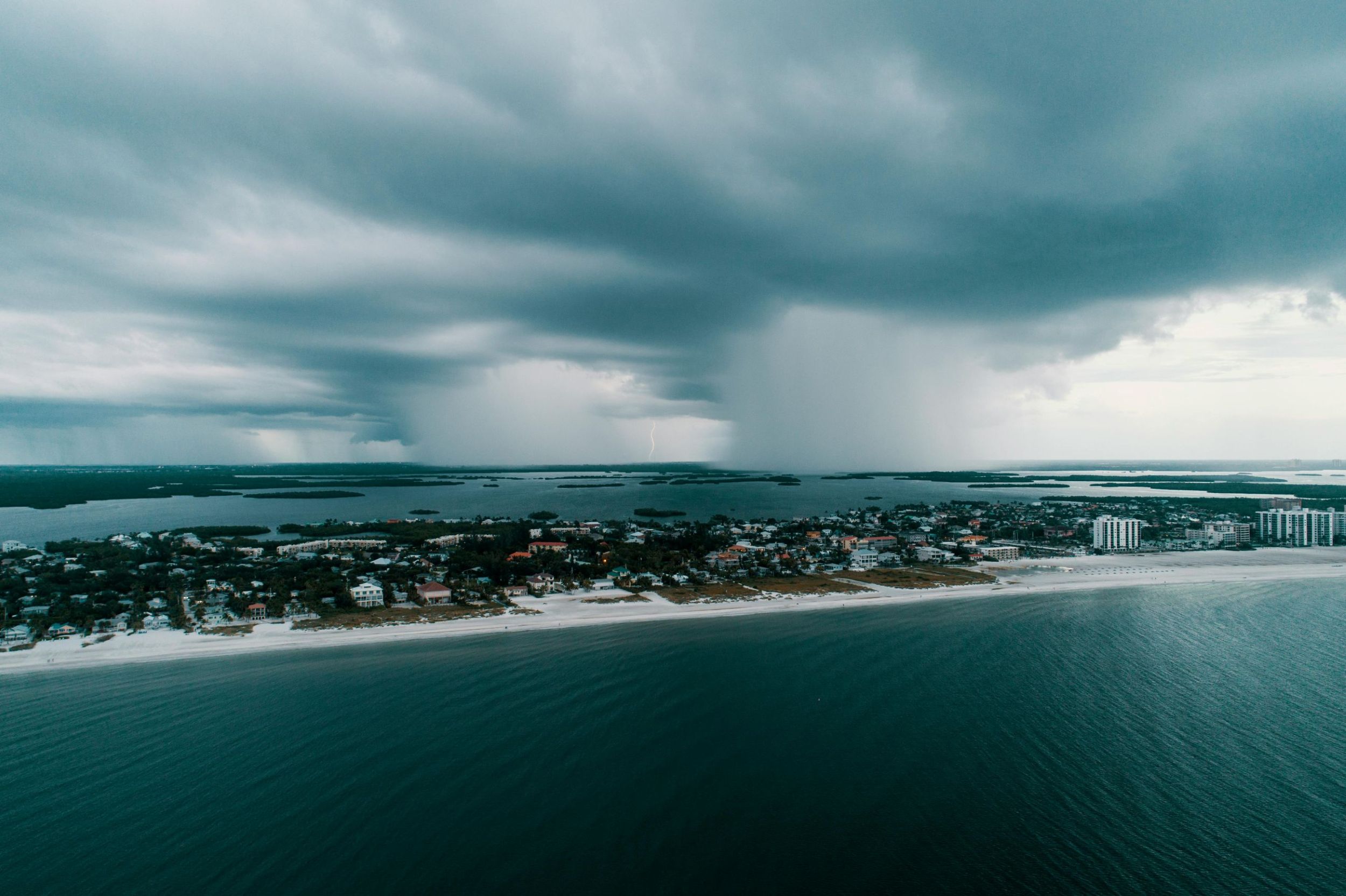
As natural disasters become more frequent and severe, seniors in disaster-prone areas face unique challenges. With retirement savings often tied up in real estate, the risk of losing these assets in the aftermath of a hurricane, flood, or wildfire can be devastating. However, a reverse mortgage can serve as a critical financial tool to protect retirement savings and provide seniors with the safety net they need. This article will explore how reverse mortgages can help seniors in these high-risk zones safeguard their retirement and weather the storms of life.
1. The Growing Threat of Natural Disasters for Seniors
Natural disasters like hurricanes, wildfires, and floods are not just destructive—they also have the potential to disrupt the financial security of homeowners, particularly those on fixed incomes. In many areas, seniors have invested a significant portion of their retirement savings into their homes, making their property both their greatest asset and their most significant financial risk.
For example, when Hurricane Ian devastated parts of Florida in 2022, many retirees found themselves in a precarious financial situation. Many seniors in these areas had their retirement wealth tied up in real estate, and when their homes were destroyed, they faced the dual challenge of losing their homes and their life savings. The reality is that for many retirees, especially those living in disaster-prone areas, housing wealth represents a critical portion of their overall retirement strategy.
This makes it more important than ever to protect retirement with a reverse mortgage. For seniors, especially those living in high-risk areas, reverse mortgages offer a way to access the equity in their homes without selling. This financial tool can provide essential resources to repair homes, pay for evacuation expenses, or manage other costs that arise during a natural disaster, ensuring that their retirement is secure even in times of crisis.
2. How Reverse Mortgages Help Protect Retirement Savings
A reverse mortgage is a loan that allows seniors aged 55 and older to tap into their home’s equity without having to sell or leave their home. This can be particularly beneficial for those who have fully paid off their homes and are looking for a way to access cash for emergencies, home repairs, or other financial needs.
By using a reverse mortgage, seniors can convert their home equity into accessible funds while continuing to live in their homes. This could be invaluable in the event of a natural disaster. For example, if a senior’s home is damaged or destroyed, a reverse mortgage could provide the financial resources necessary to rebuild or relocate, reducing the financial burden during the recovery process.
Moreover, reverse mortgages offer a line of credit, which can serve as a financial cushion during times of crisis. Seniors who live in disaster-prone areas can use the funds from a reverse mortgage to cover immediate expenses like home repairs, insurance premiums, or medical costs, helping them stay afloat until they can recover. This makes it an ideal tool for protecting retirement with a reverse mortgage in the face of an emergency.
3. Diversifying Retirement Assets to Increase Financial Security
For seniors who live in disaster-prone areas, one of the most effective strategies for protecting retirement savings is diversification. Relying solely on home equity can leave seniors vulnerable if their property is damaged or destroyed. By using a reverse mortgage, seniors can effectively diversify their assets by accessing home equity while also retaining ownership of their property.
A reverse mortgage can serve as a bridge to greater financial security by allowing homeowners to access cash without the need to sell their property. This provides seniors with a valuable backup plan for handling unexpected costs, especially in the aftermath of a natural disaster.
In addition to providing immediate financial relief, reverse mortgages offer long-term benefits. The funds drawn from a reverse mortgage are not taxable, and homeowners are not required to make monthly payments, which can help protect retirement funds in the long run.
4. Ensuring Seniors Are Prepared for the Future
As natural disasters become more frequent due to climate change, seniors living in high-risk areas need to take proactive steps to protect their retirement savings. A reverse mortgage is a powerful tool that can help seniors not only preserve their wealth but also ensure that they are financially prepared to weather life’s storms.
Seniors who live in vulnerable regions should consider the benefits of a reverse mortgage as part of their disaster preparedness plan. By securing their home equity and diversifying their assets, seniors can ensure that their retirement savings are better protected against the financial impacts of a natural disaster.
5. Conclusion: A Vital Financial Safety Net
In the face of increasing natural disasters, protecting retirement with a reverse mortgage is one of the most effective ways for seniors to safeguard their wealth. By using a reverse mortgage, seniors can access their home equity to provide financial security, helping to cover unexpected costs and protect their retirement savings.
As seniors in disaster-prone areas face growing risks to their homes and finances, reverse mortgages offer a powerful tool to ensure that their retirement wealth remains secure. Whether used for home repairs, medical bills, or evacuation costs, a reverse mortgage can help seniors maintain financial stability in times of crisis.
By taking the necessary steps to protect retirement with a reverse mortgage, seniors can strengthen their financial future and be better prepared for whatever challenges may come their way. Contact us today to learn how a reverse mortgage can work in your retirement plan.
Additional Resources:
- National Consumer Law Center (NCLC): They have a guide on assisting homeowners with reverse mortgages after a natural disaster, providing relevant insights on how reverse mortgages can help seniors maintain homeownership during emergencies
- National Council on Aging (NCOA): Their website provides comprehensive details about reverse mortgages for older adults, including the benefits of using reverse mortgages to improve financial security
